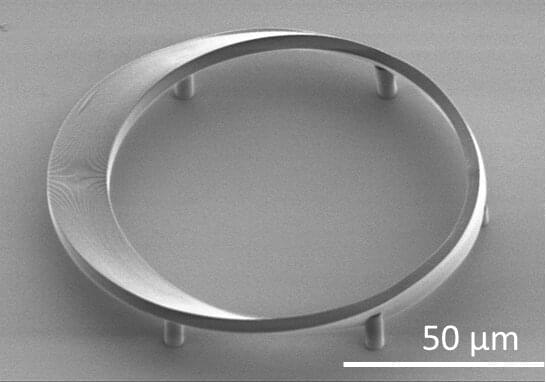Photonics is a branch of technology development that specializes in the creation of devices that can generate, detect or manipulate light. Recently, researchers at Université Paris-Saclay coined a new term for a new photonics sub-field called non-Euclidean photonics.
In a paper published in Physical Review Letters, the team introduced new devices that could be used as a test bed for non-Euclidean photonics. These devices are microlasers in which the laser cavity is a curved surface. In particular, they investigated one-sided, non-orientable surfaces known as Möbius strips.
“Our project started 10 years ago with the Ph.D. thesis of Clement Lafargue,” Melanie Lebental, one of the researchers who carried out the study, told Phys.org. “At the time, we had good expertise on 2D polymer-based microlasers and their use as quantum chaos platforms. We wanted to explore the third dimension, because we expected a lot of different features and a broad variety of dynamical behaviors, particularly regarding the symmetry classes of the laser modes and their polarization features.”
